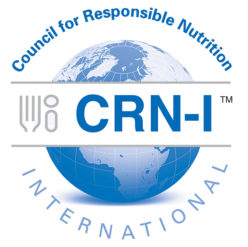Held in Düsseldorf prior to the Codex Committee on Nutrition and Foods for Special Dietary Uses (CCNFSDU) meeting
Proceedings published in the
European Journal of Nutrition
ABSTRACT TRANSLATIONS:
Arabic | Chinese | English | French | German | Hindi | Japanese | Korean | Portuguese | Russian | Spanish
Read more in CRN’s press release: CRN-International Announces New Publication Identifying Global Nutrient Gaps
5 March, 2023 | Düsseldorf, Germany
Program: 08:30 – 15:45 | Reception: 19:00 – 20:30
Symposium registration includes lunch. Complimentary for regulatory officials/government official delegates, academics, and CRN members. $99 for non-CRN members and industry NGO delegates.
See general agenda below
Download detailed agenda with times
Populations in crisis: A global overview of health challenges and policy efforts
This presentation discussed the scope of current nutrition issues from persistent forms of undernutrition, including micronutrient deficiency to diet-related chronic diseases. It explored the evolution of nutrition science including therapeutic and prevention focus, and implications for the current focus on diets and food systems. Updates on definitions and guidance related to healthy diets were discussed as were emerging issues that require further research and consensus building.
From nutrient deficiencies to chronic disease: Evolving evidence of nutrition and the role of healthy diet

Dr. Lynette Neufeld
Director of Food and Nutrition Division at the Food and Agriculture Organization of the United Nations (FAO), Rome, Italy
Between nutrient deficiency and chronic disease: How nutrition has evolved
Explore how the role of nutrition has evolved from focusing exclusively on the extremes of overt nutrient deficiency and chronic disease prevention, to equipping bodies with the ability to cope with physiologic, metabolic and psychological stress. Optimal nutrition as a public health goal was discussed, as well as emerging terminology provided by the nutrition science community.
Defining Optimal Health

Emily Ho, Ph.D.
Endowed Chair and Director, Linus Pauling Institute, Professor, College of Public Health and Human Sciences, Oregon State University, Corvallis, Oregon, USA
Adapting nutrition intervention studies to demonstrate health impact
These presentations provided concrete real-world examples of study designs and outcome measures that may be used to demonstrate the impact of interventions on healthspan, resilience and intrinsic capacity.
NAD-Replenishment as a Neuroprotective Strategy

Prof. Charalampos Tzoulis, M.D., Ph.D.
Professor of Neurology and Neurogenetics; Head, Neuromics Research Group; Director, K.G Jebsen Center for Translational Research in Parkinson’s disease; Director for Neurodegeneration, Neuro-SysMed Center of Excellence; Department of Neurology, Haukeland University Hospital; Department of Clinical Medicine, University of Bergen, Bergen, Norway
The xanthophyll carotenoids: clinical applications and targeted nutrition

Marina Green, M.D., Ph.D.
Health Sciences Research Coordination, Deputy Director, Nutrition Research Centre Ireland, South East Technological University, Waterford, Ireland
Is increasing protein ingestion sufficient to improve muscle mass and function in healthy older subjects?
Everson Nunes, Ph.D.
Physical Activity Centre of Excellence (PACE); McMaster Centre for Nutrition, Exercise, and Health Research; Hamilton, Ontario, Canada
Choline during pregnancy and lactation and foetal and infant development
Prof. Rima Obeid, Ph.D.
Department of Clinical Chemistry and Laboratory Medicine, University Hospital of the Saarland, Homburg, Germany.
Summary and discussion
The panel discussion addressed the ongoing challenges of achieving consensus or acceptance of the various definitions and interventions for demonstrating health promoting effects, and how these can inform new government policies aimed at health promotion.
